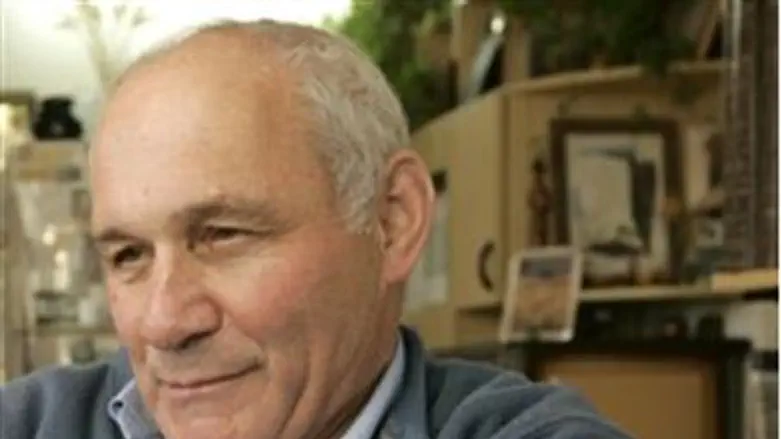
Few people can vie with the record of Rabbi and former MK Chanan Porat, the charismatic Yeshivat Merkaz HaRav Kook Torah scholar who became a national figure. Rav Porat is the beloved ideological icon of the Gush Emunim settlement movement, whose faith led a generation of young lovers of the Land of Israel to settle Judea and Samaria after the Six Day War.
Rav Porat, also a popular lecturer, teacher, and prolific writer of Torah insights which appeared weekly in a flier called "M'at Mind Ha'or" (a bit of light, ed.) , and have since been published in book form, was diagnosed with a brain tumor several months ago, He recently gave a special interview to Yinon Magal of Israel’s Channel 1 Television and spoke of his illness, of his ideology, of the expulsion from Gush Katif, and even about death.
Rabbi and Ideological Leader Chanan Porat: I Tried to Be Good
Rabbi Porat, the driving force behind the return to Gush Etzion, whose Jewish communities had been overrun and massacred by the Jordanian Legion in 1948, following the 1967 Six Day War. He was a leader in the Gush Emunim settlement organization in Judea and Samaria and came up with the idea to establish the organization after he fought in the Yom Kippur War of 1973.
“I was hanging between life and death,” he recalled. “A cannon shell fell on me and for a moment I was sure I wasn’t going to live. I remember those days as if they were yesterday. But as I was lying at Tel Hashomer Hospital, after the surgeries, hanging between life and death, I said that I must establish Gush Emunim.”
Rabbi Porat referred during the interview to the 2005 expulsion of Jewish residents from Gush Katif, which he said is “the testimony of a large rift.” He referred to then Prime Minister Ariel Sharon, who implemented the expulsion, and referred to him as “a leader who broke the hearts of many and who behaved like a dictator.”
But despite his feelings towards Sharon, when asked by Magal if he hates him, Rabbi Porat said that he does not. Rather, he explained, he sees Sharon’s actions as “terrible actions which will not be forgiven, unless, through G-d’s help or some miracle, he wakes up and says: 'I have sinned'.”
In reference to his illness, Magal asked Rabbi Porat if he is afraid of death, to which the rabbi responded that he has no fear whatsoever.
“I don’t believe that life ends with death,” he said. “It undergoes a change. It undergoes a great enlightenment. I firmly believe that.”
When asked how he would like to be remembered, Rabbi Porat,, said that he would not want to be remembered as righteous, as holy, or even as a good man.
“If you can remember something about me, remember one thing: That I wanted to be good. That I can say with a full heart: I wanted to be good. What more do I need to say?”
